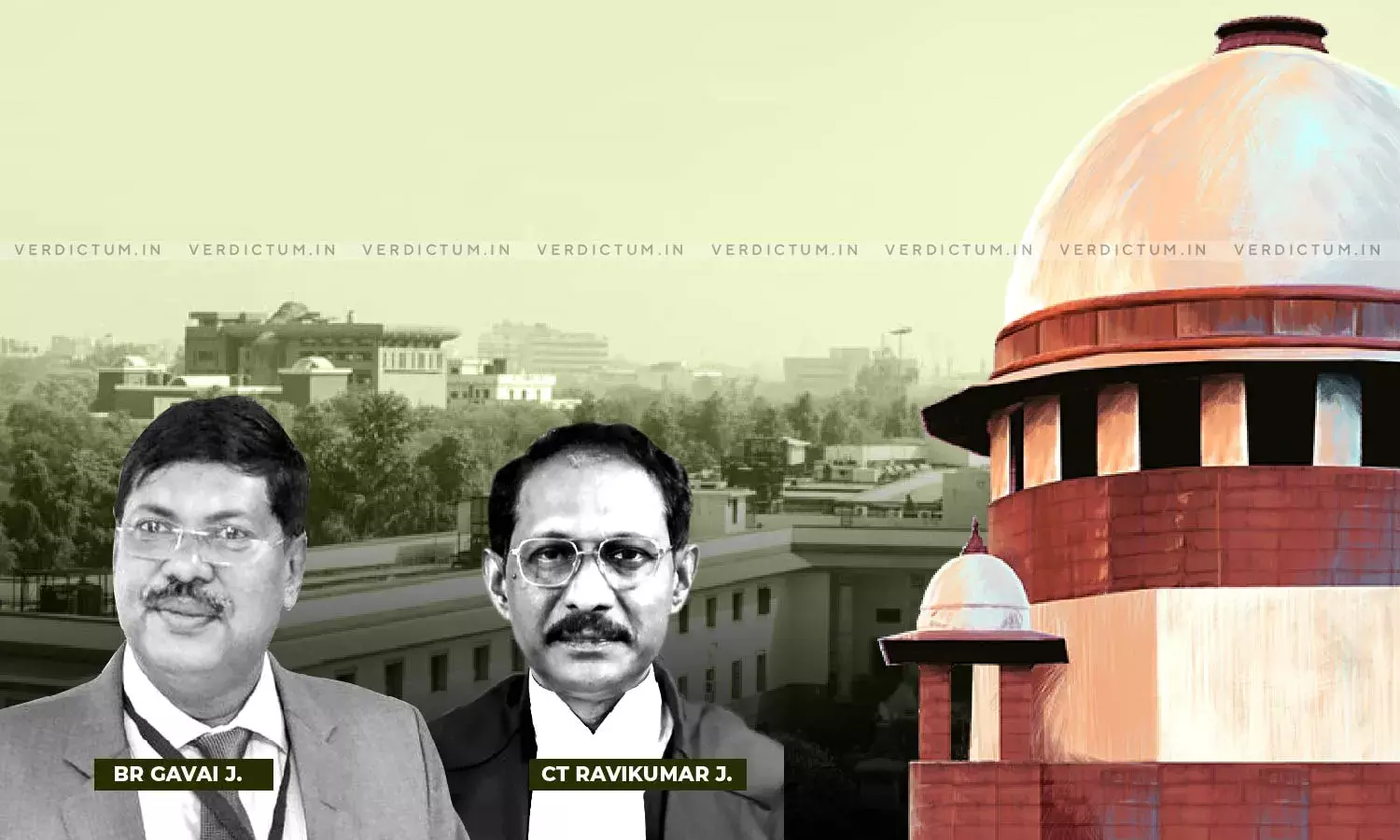Mere Delay In Instituting Suit For Recovery Of Possession, Which Is Well Within Limitation Cannot Amount To Acquiescence- SC

The Supreme Court has observed that the mere delay in instituting the suit for recovery of possession, especially when it was filed well within the period of limitation prescribed, the doctrine of laches or acquiescence had no place to defeat the right of the plaintiff to obtain the relief on his establishing his title.
The Bench of Justice B.R. Gavai and Justice C.T. Ravikumar held that "In the said circumstances, the mere delay in instituting the suit, especially when it was filed well within the period of limitation prescribed, should not have been held as amounting to acquiescence."
The Court also held, “in a case where the owner of the land filed suit for recovery of possession of his land from the encroacher and once he establishes his title, merely because some structures are erected by the opposite party ignoring the objection, that too without any bona fide belief, denying the relief of recovery of possession would tantamount to allowing a trespasser/encroacher to purchase another man’s property against that man’s will.”
Factual Background
In this case, a civil suit was instituted by the respondent herein (plaintiff) for possession of land by the demolition of the structure put up thereon and for a permanent prohibitory injunction restraining the defendant (the appellant herein) from interfering on disputed land and another land appurtenant to it, owned by her.
The suit was decreed in favour of the respondent/plaintiff holding her as the owner of the encroached land, and handing over the same after the demolition of the structures put up there was ordered. Against this order, appeal was preferred by the appellant/defendant before the First Appellate Court.
Based on the principle of acquiescence, the First Appellate Court modified the judgment holding that the respondent/plaintiff was not entitled to recover possession of the land and awarded her the compensation, and held that she was entitled to recover interest at the rate of 12 % per annum from the date of filing of the suit till realization.
Second Appeal was filed by the respondent, whereby the judgment of the First Appellate Court was set aside and the decree of the Trial Court was restored. Against the order in Second Appeal, the appeal was preferred before the Apex Court.
Senior Advocate Kiran Suri appeared for the appellants and Advocate Rajesh Srivastava appeared for the respondent.
The Court said that the concurrent finding of the High Court and Trial Court with regard to the ownership of land and its encroachment by the appellant did not call for interference in an appeal under Article 136 of the Constitution.
The question dealt with was whether there was acquiescence on part of the respondent and if so, whether the lapse of time, if any, is of no importance or consequence, with reference to the factual position.
It was contended by the appellants that the respondents did not object against the construction effected on the land in dispute within a reasonable time and therefore, was estopped from claiming recovery of the land in question. Moreover, it was contended that the construction was effected on the bona fide belief that the land belonged to the appellant therefore, the construction raised by him on the land in question is protected under Section 51 of the Transfer of Property Act, 1882.
The Apex Court said that “Conceptually, the underlying principles in Section 51, TP Act and the principle of estoppel under Section 115 of the Indian Evidence Act, 1872 are converse and cannot co-exist.” and further noted that it was proved that the appellant had no title over the property and had encroached upon the land belonging to the respondent and had effected construction without any bonafide.
The Court further observed that “the oral evidence and the documentary evidence on behalf of the respondent would reveal the factum of raising objection on “carrying out the construction, in the absence of any title over the same, at least a defective title, the original appellant could not have claimed bona fides on his action in carrying on the construction.”
Further, the Apex Court emphasised that it was the burden of the appellant to establish the fact that the respondent herein had acquiesced in the infringement of his legal right and still stood by and allowed the construction.
Therefore, the Court observed that “We may hold that in such a situation in the absence of any misrepresentation by an act or omission, the mere fact after making objection the plaintiff took some reasonable time to approach the Court for recovery of possession cannot, at any stretch of imagination, be a reason to deny him the relief of recovery of possession of the encroached land on his establishing his title over it.”
Concluding the matter, the Court observed that "There can be no doubt with respect to the position that estoppel is a principle founded on equity and as held by the court in Madanappa’s case (supra) its object is only to prevent and secure justice between the parties. In the proven circumstances that the original appellant was not having title over the property, that the respondent herein is the owner of the land in question, that the concurrent finding is that the original appellant was the encroacher and further that objection was raised by the respondent herein against the construction she should not have shut out by the rule of acquiescence or by the rule of estoppel for having made a representation to make the original appellant to believe that she had consented for the construction."
Consequently, the decree of the First Appellate Court was set aside and the judgment of the Trial Court was restored.
Accordingly, the appeals were dismissed.
Cause Title- Baini Prasad (D) Thr. LRs. V. Durga Devi
Click here to read/download the Judgment

